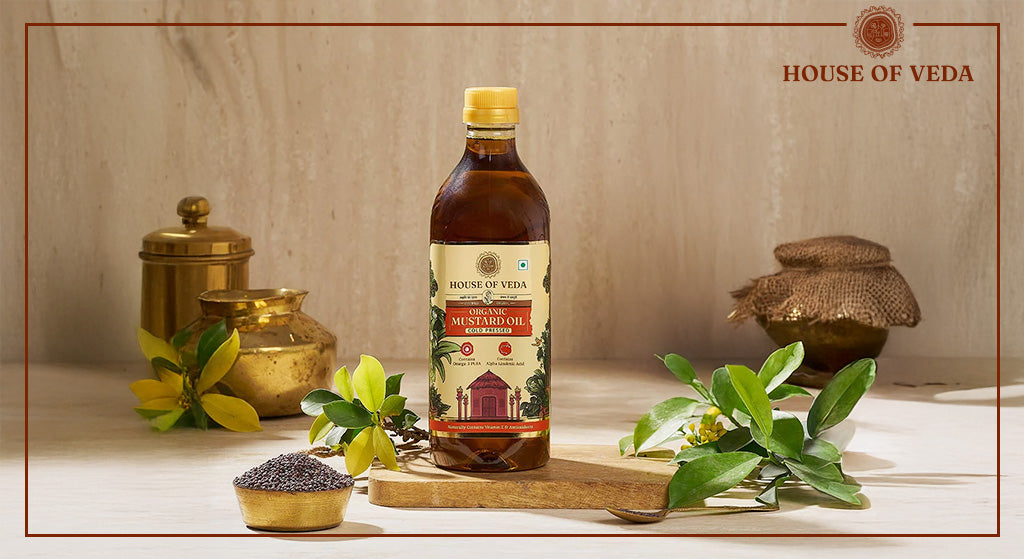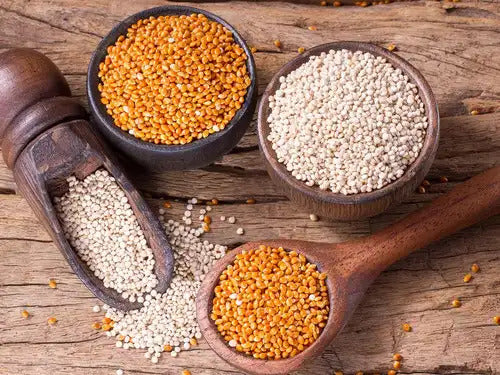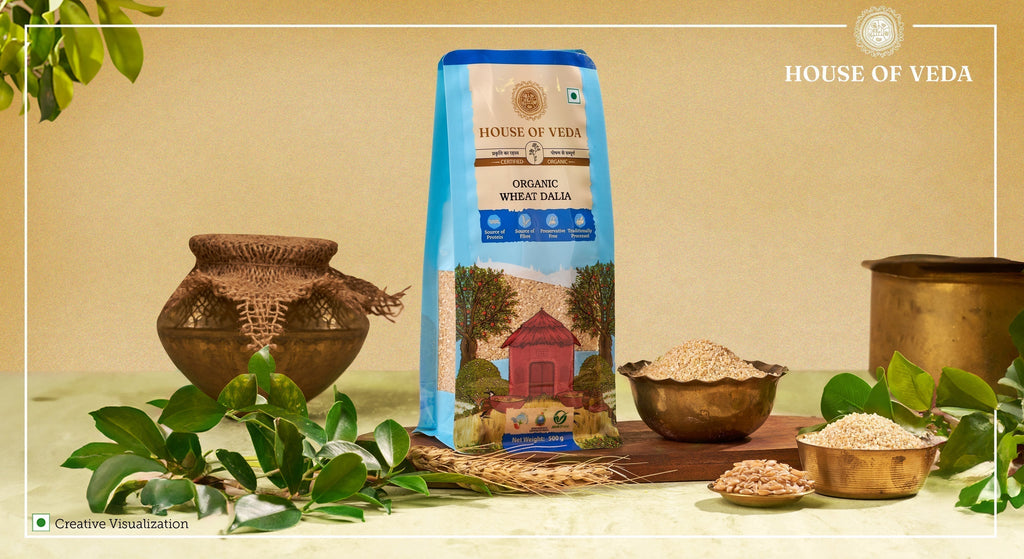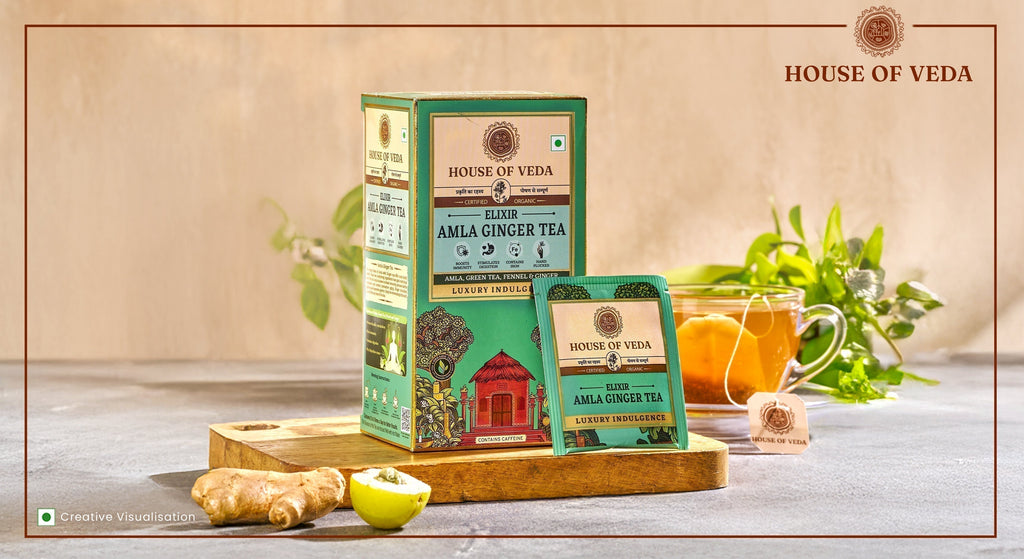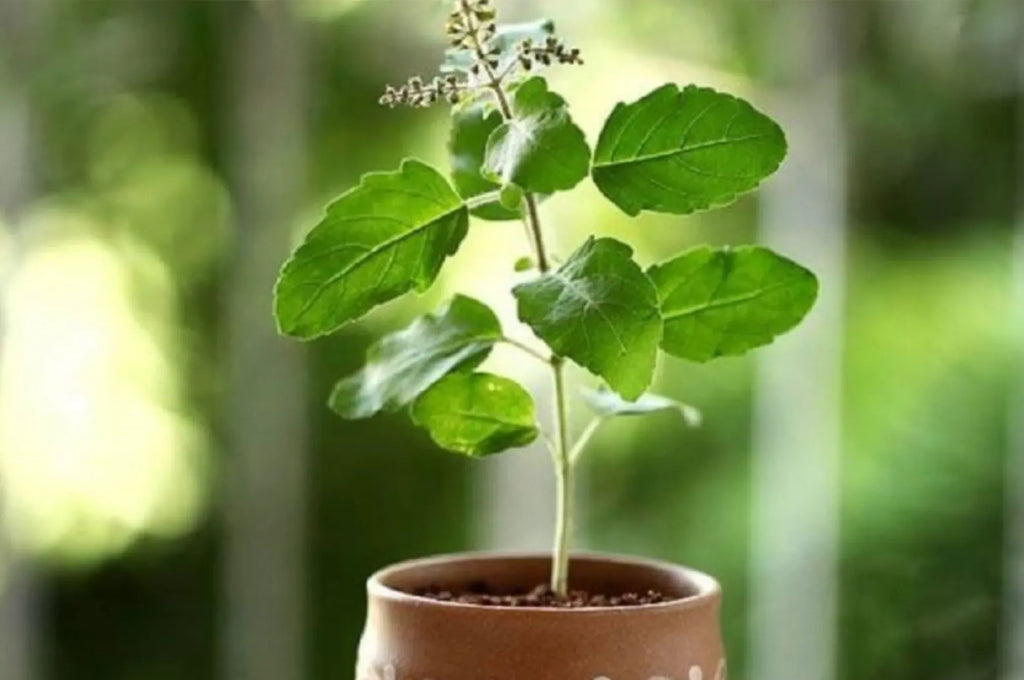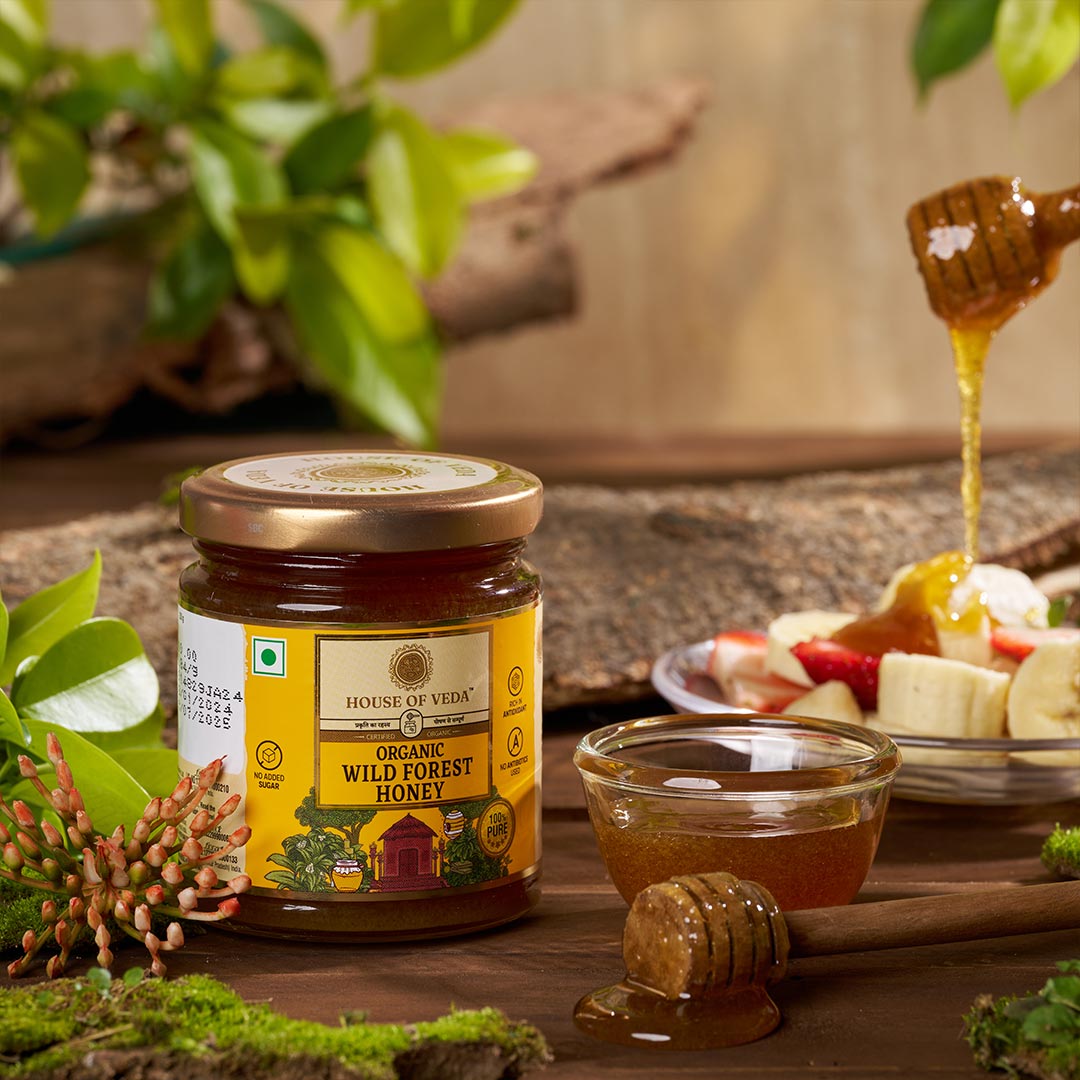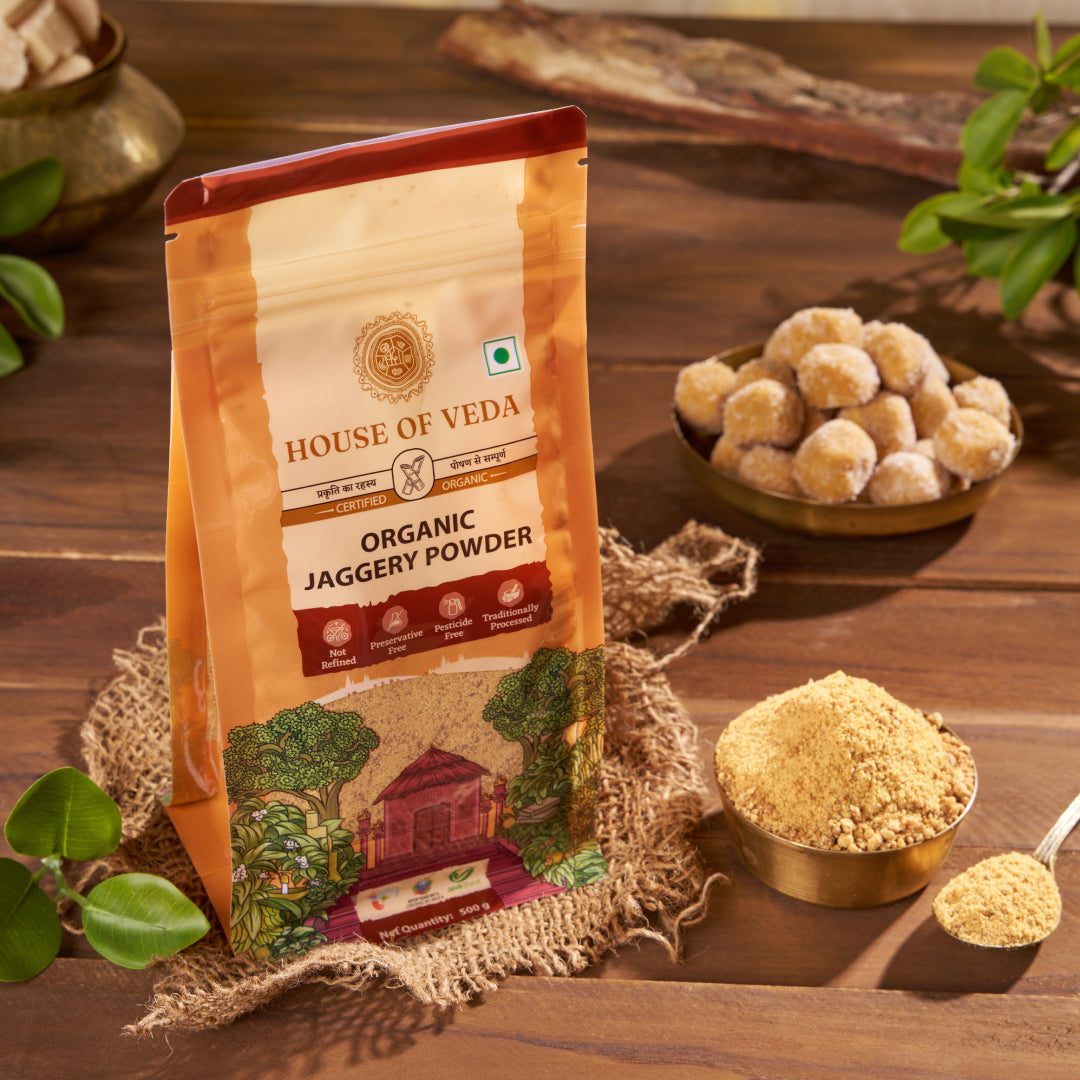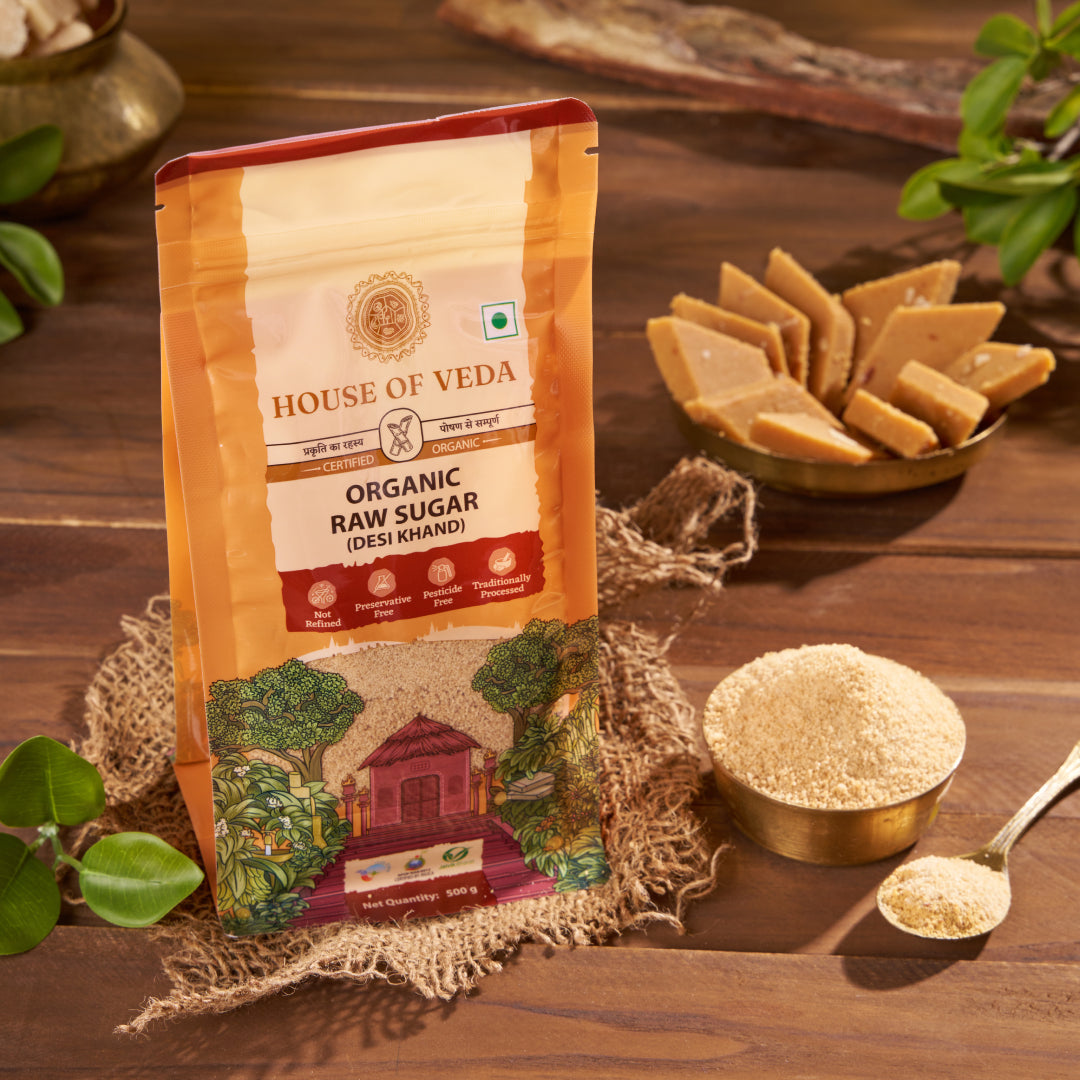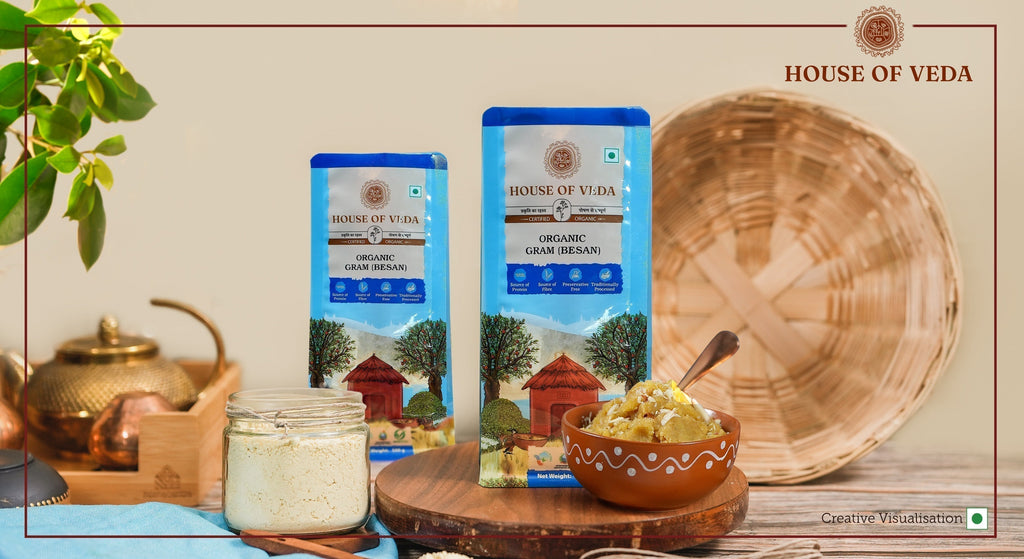
Organic Besan (Gram Flour): Pure, Nutritious & Versatile

What is Besan?
Besan, also known as gram flour or chickpea flour, is a finely ground flour made from dried Bengal gram or chana dal. A staple in Indian kitchens for centuries, besan has long been appreciated not only for its culinary versatility but also for its numerous health benefits. It is naturally gluten-free, protein-rich, and packed with essential nutrients.
Definition and Origin of Besan (Gram Flour)
The term "besan" is derived from Hindi and Urdu, and it primarily refers to flour made from split Bengal gram. Historically, besan has been part of traditional South Asian cooking and Ayurvedic medicine. Over time, it has found its way into Middle Eastern, Mediterranean, and even Western kitchens due to its nutritional profile and adaptability in both sweet and savory dishes.
Difference Between Regular and Organic Besan
Regular besan is often produced using conventionally grown chana dal, which may be exposed to synthetic pesticides and fertilizers. In contrast, organic besan is made from organically cultivated gram, grown without harmful chemicals and with sustainable farming practices. Organic besan retains more nutrients and offers a purer, more wholesome alternative for health-conscious consumers.
Common Uses of Besan in Global Cuisines
While besan is a cornerstone of Indian cuisine—used in dishes like pakoras, chillas, and sweets like burfi—it’s also employed globally. In Mediterranean cuisine, it appears in the form of socca, a chickpea flatbread. In Burmese cuisine, it's used to make tofu-like delicacies. Its unique binding properties and rich flavor make it a favorite for gluten-free baking and plant-based cooking.
Besan Benefits: Why You Should Use It
Choosing organic gram flour enhances the benefits of besan due to the absence of synthetic additives. Here are some compelling health reasons to include besan in your daily diet:
Supports Weight Management and Digestion
Besan is high in dietary fiber, which promotes satiety and reduces hunger pangs, making it an excellent flour for those trying to manage their weight. Its fiber content also aids in regular bowel movements and supports a healthy gut.
Helps Regulate Blood Sugar Levels
With a low glycemic index, besan is absorbed slowly into the bloodstream, preventing sudden spikes in blood sugar levels. This makes it a smart choice for people managing diabetes or insulin resistance.
Good for Heart Health
Besan is low in unhealthy fats and rich in magnesium and potassium, minerals known to support heart function. Its high fiber content helps lower LDL cholesterol, promoting overall cardiovascular well-being.
Improves Skin Health
Traditionally used as a natural skincare ingredient, besan acts as a cleanser, exfoliator, and brightening agent. Its anti-inflammatory and antimicrobial properties can help treat acne and skin irritation.
Nutritional Value of Besan
High Protein and Fiber Content : Besan is a plant-based protein powerhouse, offering approximately 20-22 grams of protein per 100 grams. It's an ideal protein source for vegetarians and vegans. Its fiber content supports digestive health and weight loss.
Rich in Essential Vitamins and Minerals : Gram flour is a rich source of:
-
Folate: Essential for pregnant women and red blood cell formation.
-
Iron: Supports energy levels and prevents anemia.
-
Magnesium: Helps regulate blood pressure and blood sugar.
Gluten-Free Alternative to Wheat Flour : For individuals with celiac disease or gluten intolerance, besan serves as a fantastic replacement for wheat-based flours in various recipes, from breads to batters.
Besan for Skin and Hair: Natural Beauty Benefits
Besan (gram flour) has been a time-honored ingredient in Indian beauty rituals, praised for its natural cleansing, exfoliating, and nourishing properties. Packed with protein, zinc, and antioxidants, besan offers multiple benefits for both skin and hair—making it a gentle, chemical-free alternative to commercial beauty products.
1.Natural Exfoliant for Radiant Skin
Besan works as a mild exfoliator that removes dead skin cells, unclogs pores, and brightens the complexion. When mixed with ingredients like turmeric, milk, or rose water, it helps even out skin tone and leaves your face feeling soft and refreshed.
DIY Tip: Make a simple scrub using besan, turmeric, and milk. Apply it to your face in gentle circular motions, then rinse with warm water.
2.Controls Oil and Treats Acne
Its oil-absorbing nature makes besan ideal for oily and acne-prone skin. It cleanses the skin deeply, removes excess sebum, and soothes inflammation. The antibacterial properties help prevent breakouts without over-drying the skin.
DIY Tip: Combine besan with yogurt or lemon juice for a detoxifying face pack that targets acne and blemishes.
3.Strengthens Hair and Soothes Scalp
Besan also acts as a natural shampoo, removing dirt and buildup from the scalp while preserving the hair’s natural oils. Its protein content strengthens the hair shaft, reduces hair fall, and adds shine.
DIY Tip: Mix besan with water or curd to create a paste. Apply to the scalpto scalp and hair, let sit for 15–20 minutes, and rinse thoroughly.
Incorporating besan into your skincare and haircare routine offers a holistic and Ayurvedic approach to beauty. It is not only gentle on the skin but also kind to the planet, and powerful in results.
Popular Besan Recipes for Everyday Cooking
Besan is a versatile ingredient that is used in Indian kitchenskitchen for making several delicious dishes like pakoras and chillas. This powerhouse ingredient you’ll want to keep stocked at all times. Below are some of the easy and healthy recipes you can try making with organic gram flour.
1.Besan Chilla Recipe: A Nutritious Breakfast Option
Ingredients: Besan, water, chopped onions, green chilies, coriander, turmeric, salt
Preparation:
-
-
Mix all ingredients into a smooth batter.
-
Pour onto a hot non-stick pan and cook until golden on both sides.
-
Nutritional Value: High in protein and fiber; low in fat; great for weightwatchers.
2.Besan Burfi Recipe: A Classic Sweet Dish
Ingredients: Besan, ghee, sugar, cardamom, nuts
Preparation:
-
-
Roast besan in ghee until aromatic.
-
Add sugar syrup and cardamom.
-
Mix until thickened, then pour into a tray and cool.
-
Tips: Use medium heat and constant stirring for soft texture. Store in airtight containers.
3.Besan Curry Recipe: A Protein-Rich Meal
Ingredients: Besan, curd, mustard seeds, curry leaves, spices
Preparation:
-
-
Mix besan with curd and water.
-
Cook with tempered spices until thickened.
-
Benefits: A vegetarian protein source, great for lunch or dinner.
4.Besan Chakki Recipe: A Traditional Dessert
Ingredients: Besan, ghee, milk, sugar, cardamom
Cooking Method:
-
-
Fry besan in ghee until golden.
-
Add sugar and milk.
-
Set in a tray and cut into pieces.
-
Tips: Use slow roasting for even texture. Substitute sugar with jaggery for a healthier twist.
5.Besan Pakora Recipe: A Crispy Tea-Time Snack
Ingredients: Besan, water, carom seeds, chopped onions or veggies, salt, oil for frying
Frying Techniques:
-
-
Use hot oil (around 350°F).
-
Drop small portions to ensure even cooking.
-
Healthier Alternatives:
-
-
Air-fry instead of deep frying.
-
Add grated veggies for fiber and nutrients.
-
Besan in Modern Diets and Lifestyles
1.Incorporating Besan into a Balanced Diet: As modern consumers become increasingly health-conscious, besan offers a simple way to enhance nutritional intake without compromising on taste. It can be used as a flour base in everyday meals, as a thickening agent in gravies, or even as a high-protein ingredient in meal prep snacks. From low-carb pancakes to gluten-free wraps, besan adapts well to various modern dietary preferences.
2.Ideal for Vegan and Plant-Based Lifestyles: With its high protein content and ability to bind ingredients, besan is a boon for plant-based eaters. It serves as a fantastic egg substitute in vegan omelets, pancakes, or fritters. Its richness in iron and folate also helps fulfill vital nutrient needs in vegetarian and vegan diets.
3.Perfect for Gluten-Free and Clean-Eating Plans: Whether you're managing a gluten allergy or simply choosing to eliminate refined ingredients from your diet, besan checks all the boxes. Naturally gluten-free and unprocessed, it's a clean-eating essential that pairs well with fresh produce, lean proteins, and healthy fats.
4.Easy Add-On for Meal Planning: Besan-based recipes are easy to batch-cook and store. Chillas, for instance, can be prepped and frozen, then reheated as needed. Energy bites made from roasted besan and jaggery make for excellent on-the-go snacks, especially for kids or busy professionals.
How to Choose High-Quality Organic Gram Flour
Making the right choice when it comes to besan can significantly enhance both the flavor and health quotient of your meals. Organic gram flour, derived from naturally grown chana dal, is free from harmful chemicals and rich in nutrients. Whether you're using it for cooking or skincare, understanding the key differences and proper storage techniques ensures you get the most value out of this pantry essential.
Organic vs. Non-Organic Besan: Key Differences
1.Farming Practices: Organic besan is made from chana cultivated using sustainable and eco-friendly methods. These farming practices avoid synthetic pesticides, herbicides, and chemical fertilizers, resulting in cleaner, safer flour.
2.Taste and Aroma: Organic besan typically boasts a richer, nuttier taste and a fresher aroma, thanks to the absence of chemical residues and the use of traditional milling techniques. This enhanced flavor can significantly elevate the taste of your recipes.
3.Nutritional Value: Because it's processed minimally and without synthetic additives, organic besan retains more of its natural vitamins, minerals, and antioxidants. You get more iron, magnesium, and dietary fiber with every spoonful.
5.Environmental Impact: Choosing organic contributes to soil health and biodiversity, as organic farming avoids harmful monoculture and promotes natural crop rotation.
Storage Tips for Maintaining Freshness
To make the most of your organic gram flour and maintain its freshness, follow these essential storage tips:
1.Airtight Container: Always transfer besan into an airtight container after opening the package. This prevents exposure to air, which can lead to spoilage and insect infestation.
2.Cool and Dry Location: Store the container in a cool and dry place. The best place can be a pantry or cupboard away from direct sunlight. Heat and moisture are major enemies of gram flour.
3.Avoid Moisture: Even a small amount of moisture can cause besan to clump or develop mold. Use a dry spoon every time you scoop the flour.
4.Use Within 2–3 Months: For the best taste and nutritional value, use the flour within 2–3 months of opening. If stored for longer, check for changes in smell or texture before use.
5.Refrigeration Option: In humid climates, consider storing besan in the refrigerator in a tightly sealed container to extend its shelf life and preserve freshness.
Conclusion
Besan is more than just a kitchen staple—it's a nutrient-dense, gluten-free flour loaded with health benefits. Whether you're aiming to manage your weight, regulate blood sugar, improve your heart health, or just enjoy wholesome recipes, besan fits beautifully into a balanced lifestyle.
Its versatility in cooking makes it a go-to ingredient for savory and sweet dishes alike. Plus, its time-tested role in natural skincare offers added benefits for beauty enthusiasts. By choosing organic besan, you're ensuring maximum purity and health benefits for you and your family.
So go ahead—incorporate this golden flour into your daily meals and beauty rituals. Your body (and taste buds) will thank you.
Buy Now and add the goodness of besan to your daily routine!
FAQs
1.Is Besan Good for Diabetes?
Yes, besan has a low glycemic index and is high in fiber, making it ideal for managing blood sugar levels.
2.Is Gram Flour Good for Daily Use?
Absolutely! When consumed in moderation, gram flour is a healthy, protein-rich alternative that can be included in daily meals.
3.How Much Protein Does Besan Contain Per Serving?
One 100-gram serving of besan provides approximately 20–22 grams of protein.
4.Can I Use Besan Instead of Wheat Flour in Rotis or Parathas?
Yes, but besan lacks gluten, so it won’t stretch like wheat dough. Combine with other flours or use in flatbread recipes like chilla or thepla.
5.Is Organic Gram Flour the Same as Regular Gram Flour?
Nutritionally, they are similar, but organic gram flour is free from harmful chemicals and better for your health and the environment.
"The House Of Veda Stands By The V-E-D-A Principles. Every Blog We Write And Every Product We Offer Is Built On Verified Experience And Expertise. We Are Committed To Dependability And Authenticity, Ensuring That Our Community Receives Nothing But The Best In Organic Wellness."
"V-E-D-A" (Experience, Dependability, Authority, And Authenticity)



